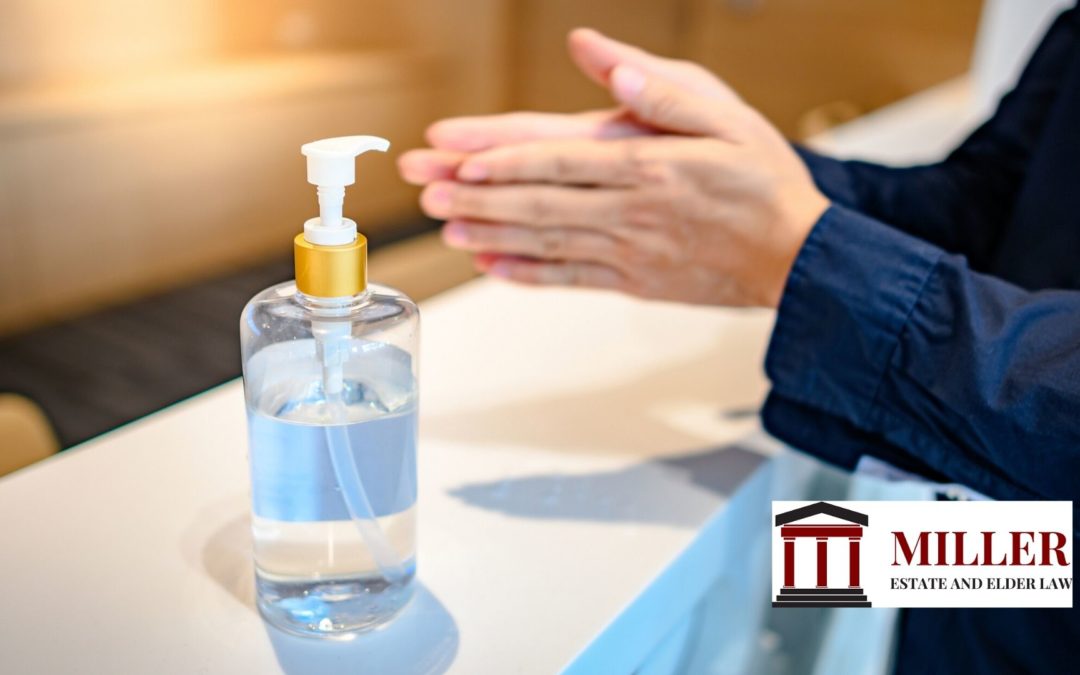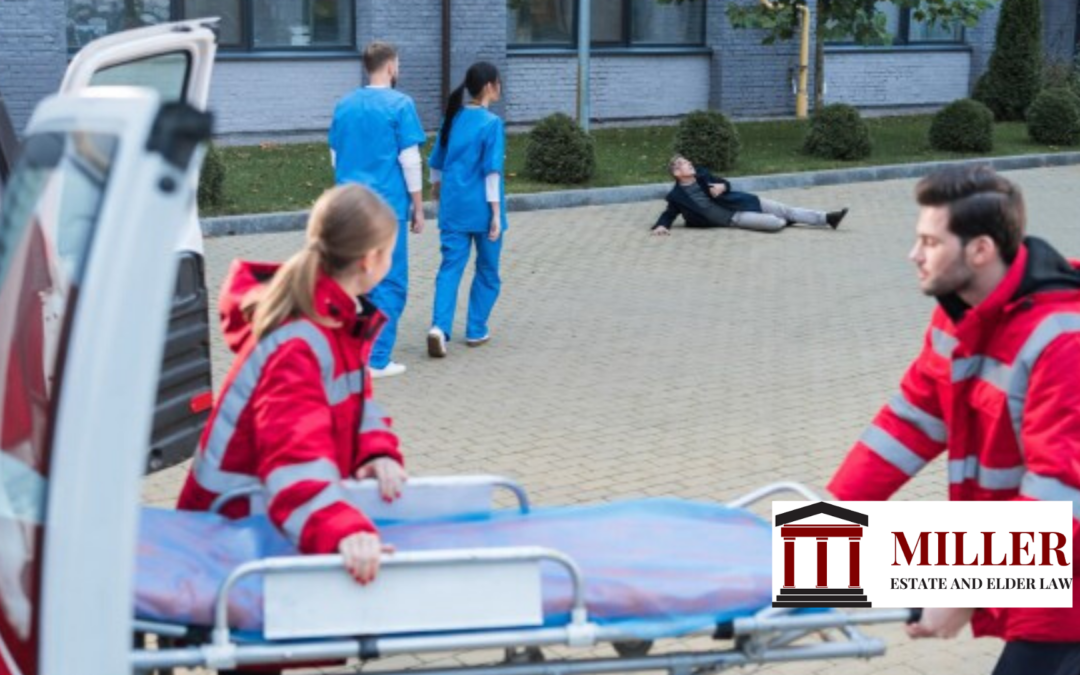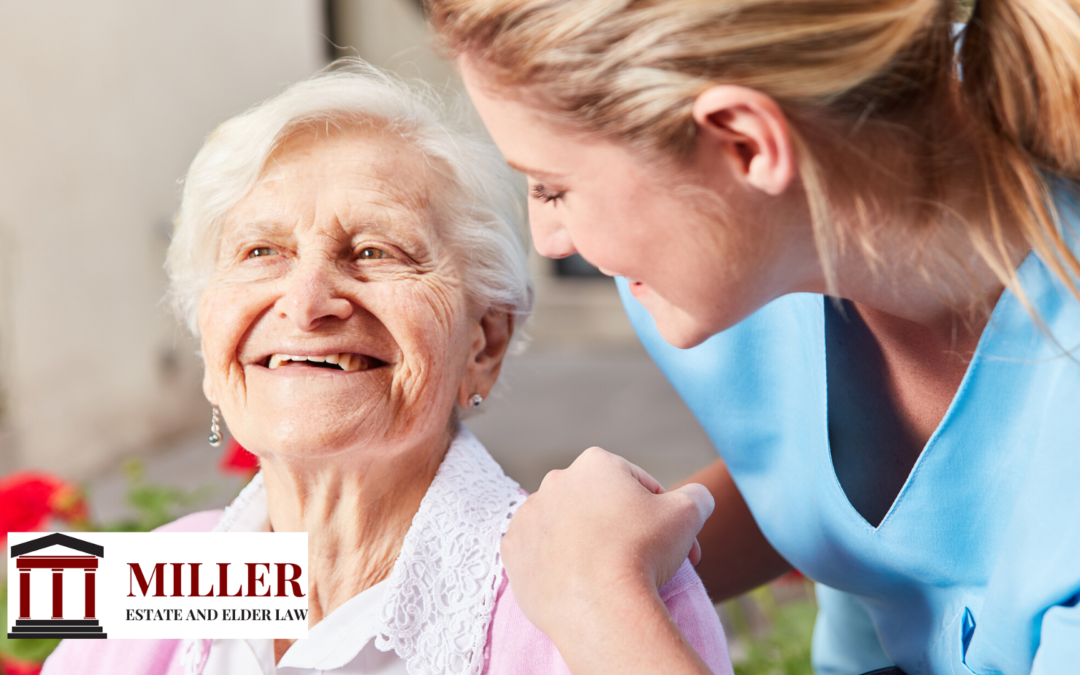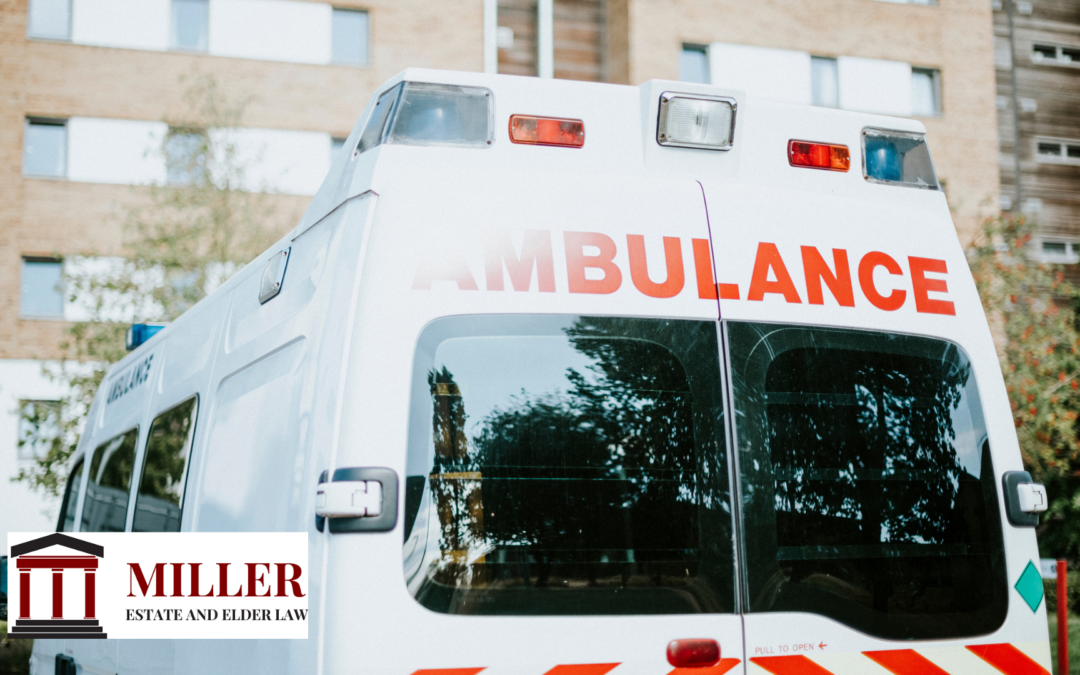
by Bill Miller | Aug 3, 2020 | Aging Parents, Blog
When we were younger, our parents took care of us and helped us plan for the future. At some point, most of us may have to do the same for our parents and help them plan for the future. Do you know if your parents have an estate plan? It is not only important to know the answer to this question, but to understand the details associated with the answer. Estate planning plays a crucial role in planning for the future.
Today, let us take a moment to discuss six questions to ask your aging parents to help them plan for the future.
1. Do they have a health care surrogate in place? This is one of the most important questions to ask as you want to ensure that they may be taken care of should they become seriously ill and/or incapacitated.
2. Have your parents chosen a trusted individual to take on the health care surrogate role? Selecting a health care surrogate is a decision that should not be taken lightly because this person will be making the decisions on behalf of your parent should he or she become critically ill. Try to ensure the person that they have chosen is responsible and, of course, of sound mind.
3. Where are the original estate planning documents kept? If the time arrives when your parent dies or becomes incapacitated, do you know where the original estate planning documents are kept? The original will is necessary to commence probate. In fact, if you do not have the original it may be very difficult to probate the estate according to the terms of the missing will.
4. Are your parents’ estate planning documents up-to-date? An estate plan is one of the ways that people ensure their legacy will go on and that the assets that they have chosen for their family can be accessed upon their death. Estate plans should be up to date to reflect current living circumstances and major life events. You can talk to your parents about how they can update their estate plan. An estate plan is a great way to help your parents think ahead, but to be most effective it should be up to date.
5. If your parents have a trust, is it properly funded? If not, it could mean a long and expensive probate before you can have access to their assets. To understand it a little better remember, funding a trust means taking assets that are titled in the individual trust settlor’s name and retitling them into the name of the trust.
6. Is your parent working with an attorney they trust? Having a comprehensive and properly drafted estate plan in place can be crucial to securing the future you want for yourself and your loved ones. Having the right estate planning attorney on your side, who understands your unique situation and can advise you appropriately, can be absolutely critical to proper estate planning.
Our firm is committed to representing your best interests and that of your family. We do this by drafting estate plans that have been crafted to meet your unique needs. For help creating your estate plan or answering any related questions, we are here for you. Contact our office today to schedule a meeting.

by Bill Miller | Mar 18, 2020 | Aging Parents, Blog, World News
We know that you and the Alabama seniors you love may have concerns right now. We also know that uncertain times can put all of us on edge. Often, even when we are inundated with information, the right knowledge from a trusted source can put our minds at ease. We can no longer ignore the fact that the COVID-19 virus (coronavirus) is spreading at an alarming rate around the world. Even with its unprecedented spread, however, there are still many precautions that we can take right here in Alabama to protect you, as well as your loved ones.
By now we are all familiar with the most popular precaution which has been shared by the various health authorities around the world:
Make sure that you properly wash your hands!
What does it mean to “properly” wash your hands? This means meticulously cleaning your hands for at least twenty (20) seconds with soap and water, or an alcohol-based hand rub. You may find it interesting to learn that, according to the FDA, “the benefits of using antibacterial hand soap have not been proven.” Washing your hands remains one of the best preventative measures that you can implement to safeguard yourself and your elder loved ones. In addition, according to the World Health Organization (WHO) washing your hands helps to kill viruses that may be on your hands.
Let us share a few other suggestions from the WHO.
1. Maintain social distancing. Maintain at least 1 meter (3 feet) distance between yourself and anyone who is coughing or sneezing. This one is especially important because it is easy to breathe in the droplets of someone who is suffering from the COVID-19 virus. This is true for most viruses like the flu.
2. Avoid touching eyes, nose and mouth. Remember, especially for our younger loved ones, touching many surfaces can cause you to pick up viruses. WHO states that, “once contaminated, hands can transfer the virus to your eyes, nose or mouth. From there, the virus can enter your body and can make you sick.”
3. Practice respiratory hygiene. How do you practice respiratory hygiene? Cover your mouth and nose with your bent elbow or a tissue when you cough or sneeze. Dispose of the used tissue immediately.
4. Help “at risk” loved ones limit interactions with those who may be infected. First, understand who may be at risk using this article we want to share with you. Although social isolation can be hard, help these individuals try to make informed decisions about where they truly need to be. Routine check up? Maybe postpone it until the virus is under control as very ill people could be in the waiting room. Although these decisions are up to you and your family, think about how to best keep everyone’s health intact.
Another important precaution that can help everyone around you is to stay home if you feel unwell. Further, if you have a fever, cough and/or difficulty breathing, do not wait to seek medical attention. Be sure to call your healthcare provider in advance, if you can.
The last tip we will share is also extremely important as we continue to battle this deadly virus. Make sure that you stay informed and follow any advice given by your healthcare provider. Do not rely simply on the news or secondhand information. Staying up to date can arm you with the right information to make the best decisions for yourself and your loved ones.
If you would like to learn more about how you can protect yourself and your loved ones check out this WHO article that goes into detail about preventative measures that we can follow in the fight against COVID-19. Know that we are here for you, both now and in the future. Do not hesitate to contact our law practice to learn more about how to protect and advocate for yourself and those you love.

by Bill Miller | Feb 17, 2020 | Aging Parents, Blog, Caregivers, Long-Term Care
Whoever said, “Life at you fast” wasn’t joking. Our lives can be changed in the blink of an eye by an accident or other unpleasant surprise. However odd it may seem, it is possible to prepare for an unexpected emergency. In some cases, that means have a good estate plan in place before the emergency.
Sometimes a loved one may need sudden medical attention.
A complete estate plan typically includes an advance directive for health care. This document may include a durable power of attorney and a living Will. If you suddenly become ill and unable to communicate with your doctors, your advance directive will be a big help to your family and your healthcare providers. Your power of attorney has named an agent to communicate for you. A living will states your preferences for end-of-life treatment.
Emergencies can involve incapacity or disability.
If you are disabled due to a medical emergency, your advance directive helps with medical decisions. However, financial matters must be attended to also. This is where your general durable power of attorney makes a difference. The agent you named in your durable power of attorney can step in and take over your financial affairs if you are no longer able to do so.
You may also have set up a revocable living trust, naming yourself as trustee. In the event of your incapacity, the successor trustee can take over management of the trust.
In addition, you may have engaged in other incapacity planning that may help you qualify for government benefits like Medicaid.
One worst case scenario may include moving a beloved family member to a nursing facility.
Speaking of Medicaid, you or a loved one may need Medicaid to pay for long-term care costs. It’s important to start your Medicaid planning early because Medicaid will review your finances for the five years prior to applying for benefits. Some transactions made during that time frame could reduce or eliminate your eligibility.
Certain trusts can help you with long-term care planning. However, you will need to speak with an attorney to make sure your trust is established correctly.
An unexpected emergency may even lead to death.
Finally, death is often unexpected. Your valid Alabama Will or revocable living trust affect how your property will be passed to your heirs. Leaving these documents behind for your family helps them at a truly stressful time.
Estate planning can help when an unexpected emergency arises
Your estate plan can’t help, though, if it is out of date or you haven’t even prepared it yet. Schedule a consultation with one of the attorneys at Miller Estate and Elder Law. Our phone number is 256-472-1900. Miller Estate and Elder Law is now located at 818 Leighton Avenue in Anniston, but we serve clients in communities like Hoover, Vestavia Hills, Irondale, and Calera.
Check out our website for information about free workshops and guides.

by Bill Miller | Dec 12, 2019 | Aging Parents, Blog, Nursing Home
There is never a wrong time to visit a loved one who is in a nursing home. Simply seeing the visitor or family member may be more meaningful to the person confined to the long-term care facility than you know. With that said, each of us needs to be prepared as our loved one may find it difficult to effectively communicate due to his or her unique health concerns.
Despite there being little communication during the visit, oftentimes, just being present with a family member or friend can be satisfying to the patient. We know you may have questions on the ”right way” to visit with a loved one. We want you to know that there is no one “right way” but the following are some suggestions on how to make a visit to a person confined to a long-term nursing home meaningful.
As a visitor, you want to consider bringing with you items that can be of interest to the patient. For example, if the patient previously had a pet, it could be meaningful if the visitor brought his or her pet for a visit with the patient at the nursing home. Similarly, if the patient enjoyed music or played a musical instrument, the visitor could bring a cassette player and discs to play music that would be meaningful to the patient. Simply reading aloud can also be helpful.
Oftentimes, as nursing home residents decline, they lose the ability to communicate. Unfortunately, we see that this is a time when many families stop visiting as often because they do not know what to say or how to make the visits meaningful for the family, as well as their loved one. It can also be difficult to see a loved one when he or she cannot communicate. It is crucial to remember again that just being present can be rewarding for all involved.
Talk with your loved one about events going on in the community or family. Even if they are nonverbal, do not assume they cannot understand. Just hearing your voice could bring comfort and keep them connected with the outside world. It may also be helpful to prepare or purchase a special food or dessert they love or of an ethnic origin that is not offered at the nursing home. Before you do this, however, you will want to be sure that the dietitian and physician agree that the patient can tolerate this new food.
Looking at old family picture albums with a patient may be meaningful. This may cause the patient to reminisce about past life experiences. Bring in old family photographs and scrapbooks, if you have them. The patient may enjoy just listening to you explain the pictures and the memories.
We know this article may raise more questions than it answers. We are here to answer your questions on this or any elder care issue you may be facing. We guide and work to protect families throughout our community to ensure that they have the long-term care support they need. Do not wait to schedule a meeting with our team.

by Bill Miller | Aug 12, 2019 | Aging Parents, Blog
Did you know medical alert systems are life-saving technologies that have helped countless seniors over recent decades?
In fact, they are so valuable that August has been designated national Medical Alert Awareness Month.
Alert systems can vary depending on a senior’s needs, but almost all of them require the user to wear a device. This can be a pendant, a lanyard, a bracelet, or even some smartphones, but all of them include an emergency call button. When the button is pressed, an alert signal is emitted and emergency assistance is contacted.
How can you tell if an aging parent or senior loved one can benefit from medical alert systems?
By paying attention to warning signs. Seniors with serious medical conditions such as heart disease, epilepsy, Parkinson’s disease, dementia, Alzheimer’s disease, and diabetes are all candidates for the safety net devices, as are seniors with similar ailments. Other telltale signs can include:
- Frailty
- Diminished mental alertness
- Vision problems
- Balance issues
- A recent heart attack
- Falling or a near-fall
It’s also a good idea to speak with an aging loved one’s doctor about his or her overall health condition. Make sure to ask about potential concerns and related precautions. Medical alert systems may be effective solutions that could even allow for increased independence.
The safety technologies are most effective when combined with other aspects of elder care, particularly those that aging adults struggle to maintain, such as home clutter and tripping hazards. Complementing safety measures might include a decluttering plan, regular eye exams, senior-friendly exercise such as tai chi or balance training, and proper footwear.
Seniors who take medications with certain side effects could also benefit from an emergency alert system. For instance, medicines causing drowsiness, dizziness or imbalance can contribute to falls, which often result in broken hips and head injuries. In these cases, every second counts, and an emergency alert would summon help immediately.
No matter how careful seniors and their adult children may be, accidents and emergencies are a part of life. While older adults face elevated risks, medical alert systems provide one of the best ways to be prepared. There is never a wrong time to plan forward and we encourage you to reach out to our law office and schedule a meeting to discuss your elder care concerns.




